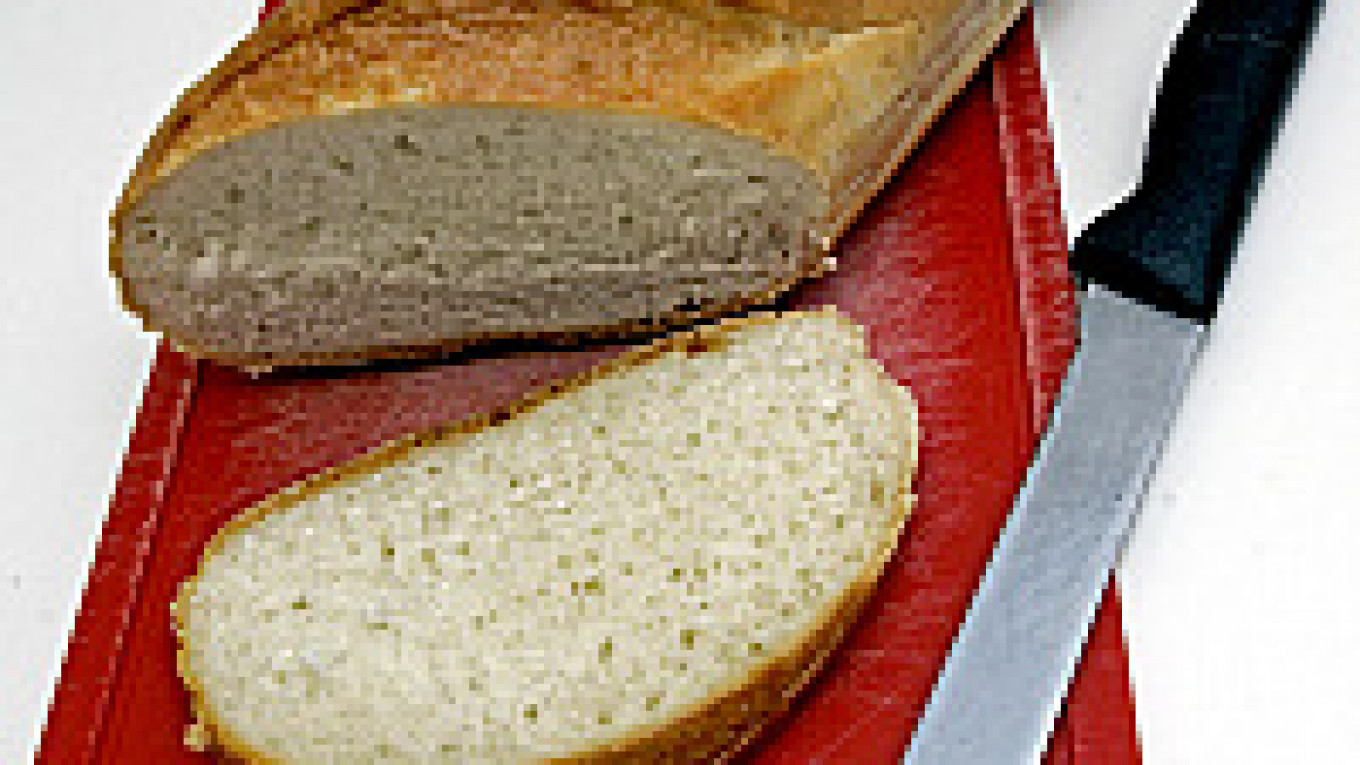"The aroma of that bread, fresh from the oven," said Taisia Isayeva from St. Petersburg's Khlebny Dom. "It's so sad that you can't convey it to people! It's such a distinct smell; nothing tastes better than freshly baked bread!"
It's no wonder that Isayeva talks in hyperbole. Baton nareznoi -- golden-brown and chewy on the outside, soft and white on the inside, packed into clear cellophane and sold for 10 to 15 rubles by babushkas, supermarkets and kiosks alike -- is a big deal.
Khlebnoi Dom makes 75 tons of baton nareznoi per day, said Yulia Lomako, its marketing director. Every year 1.6 million tons of the ubiquitous loaf are baked across the country, she said. That's about 20 percent of all baked goods, making it the most popular.
Baton nareznoi entered mass production in the 1960s, after a statewide re-engineering of bread factories. Mechanized production lines were made so that loaves of all types, nareznoi among them, would be made by the millions, so that everyone could have their bread and eat it, too.
Nareznoi received its name from the narezki or cut lines applied in the last stage of its preparation so that the dough does not crack unevenly when rising: "Automatic knives leave slash marks on the upper surface, and then finally, the dough is ready for baking," Isayeva said.
As with many other great, simple things in life, baton nareznoi is made from flour, sugar, margarine, salt and yeast.
The white loaf is prepared in three stages.
First, the ingredients are put together in a special intensive mixer. The resulting mass then gets flattened into a pancake, and swiveled into a roll.
The third stage, Isayeva said, is a special process because "dough, it's a living organism. It needs to rest, relax, and take time to get ready." At this stage, the dough is allowed to sit and rise. Then, it's cut and sent into ovens and baked into the baton nareznoi we're all familiar with.
A Message from The Moscow Times:
Dear readers,
We are facing unprecedented challenges. Russia's Prosecutor General's Office has designated The Moscow Times as an "undesirable" organization, criminalizing our work and putting our staff at risk of prosecution. This follows our earlier unjust labeling as a "foreign agent."
These actions are direct attempts to silence independent journalism in Russia. The authorities claim our work "discredits the decisions of the Russian leadership." We see things differently: we strive to provide accurate, unbiased reporting on Russia.
We, the journalists of The Moscow Times, refuse to be silenced. But to continue our work, we need your help.
Your support, no matter how small, makes a world of difference. If you can, please support us monthly starting from just $2. It's quick to set up, and every contribution makes a significant impact.
By supporting The Moscow Times, you're defending open, independent journalism in the face of repression. Thank you for standing with us.
Remind me later.


